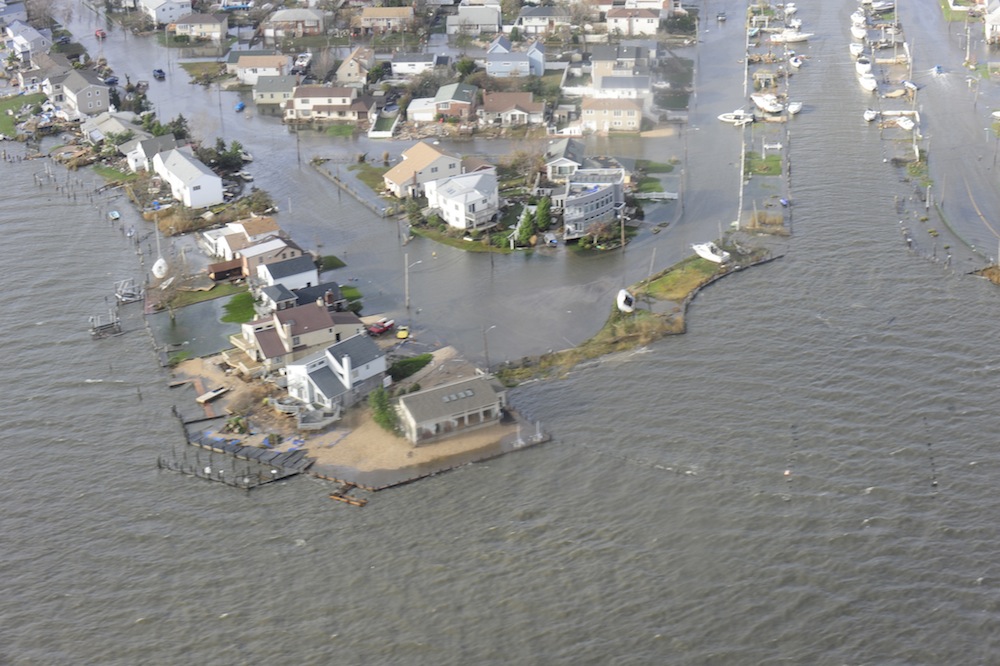Codes and standards concerning emergency backup power and other key resiliency matters should reflect lessons learned from Hurricane Sandy and other recent major storms, says Bhavesh Patel, vice president, global marketing for ASCO Power Technologies.
One standard, the NFPA 110: Standard for Emergency and Standby Power Systems, 2013 edition says, “EPSS (emergency power supply system) equipment should be located above known previous flooding elevations where possible.” And later states, “For natural conditions, EPSS design should consider the ‘100-year storm’ flooding level predicted by the Sea, Lake, and Overland Surges from Hurricanes (SLOSH) models for a Class A hurricane.”
“The qualifiers in the two paragraphs – ‘where possible’ and ‘should consider’ – can dilute the effect of the code if the project specifiers are not strict and careful in determining what ‘possible’ can entail,” Patel writes. “The words ‘where possible’ and ‘should consider’ are not as straightforward in conveying intent as a more emphatic ‘must,’ and leaves the door open for less sense of the need to comply.”
Patel notes that a post-Hurricane Sandy task force has recommended that New York City codes be updated to locate building equipment higher to avoid flood damage, require sewage valves to prevent backflows during flooding, and provide for easy access to backup generator hookups.
Related Stories
Codes and Standards | Apr 12, 2017
Trump infrastructure task force suggests arbitration to speed projects
Permitting process could be reduced from 10 years to 2 years under the proposal.
Codes and Standards | Apr 11, 2017
2017 National Energy Codes Conference includes code boot camp, PNC Tower tour
The DOE-sponsored event will be held in Pittsburgh July 17-20.
Codes and Standards | Apr 10, 2017
Congressional hearing on skills gap includes look at construction industry
Strategies to boost ranks of construction workers include mentoring programs, increased safety measures, trade group support, and outreach to school counselors.
Codes and Standards | Apr 6, 2017
Product-specific EPDs seen as key aid to earning green building credits
The product-specific EPDs allow designers to more quickly earn a LEED v4 credit in the Materials & Resources category.
Codes and Standards | Apr 5, 2017
Updated AIA Disaster Assistance Handbook released with significant enhancements
Updates provide guidance on how design and construction pros and emergency managers can work together to prepare for and respond to disasters.
Codes and Standards | Apr 4, 2017
Global standards for indoor environmental monitoring under development
Systems and sensors guidelines will be aligned with major green standards.
Codes and Standards | Apr 3, 2017
New standard test method for static loading and impact on exterior shading released
The method provides a standard lab procedure evaluation of ice and snow loads and impacts.
Codes and Standards | Mar 30, 2017
WELL enters strategic partnership with developer of standards and assessment tools
GIGA’s RESET standard and data collection will be integrated into the WELL standard.
Codes and Standards | Mar 29, 2017
Climate-specific code changes target energy savings for tropical zones
Hawaii considers updated 2015 IECC tailored to its climate.
Codes and Standards | Mar 28, 2017
Safety concerns over wood-frame construction raised after Raleigh apartment fire
The unfinished building was destroyed in a five-alarm blaze.

















